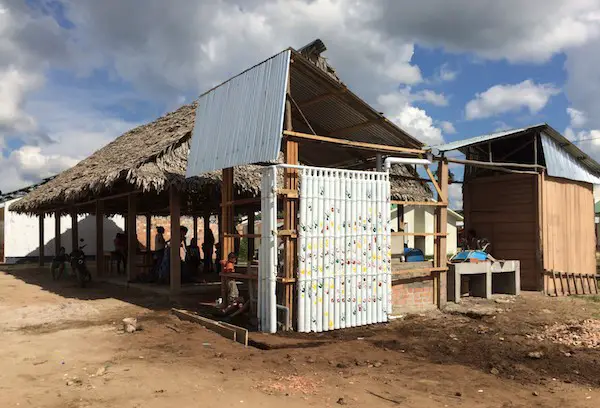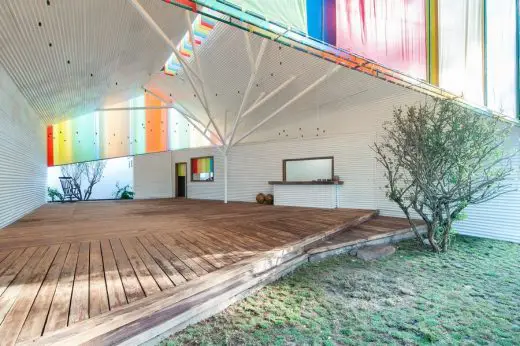World Architecture Festival Water Research Prize 2018, Shortlist, Buildings
World Architecture Festival Water Research Prize
WAF International Architectural Prize News
10 Aug 2018
World Architecture Festival Water Research Prize 2018
World Architecture Festival Reveals Winner of Inaugural Water Research Prize
World Architecture Festival (WAF) has revealed the 2018 winner of its inaugural Water Research Prize: an innovative, community led water management system, designed by a team of students from Pontificia Catholic University of Peru (PUCP) which captures, stores, and treats rainwater and inserts it into pre-existing water networks.
The winner will receive a £10,000 prize from GROHE, the world’s leading supplier of sanitary fittings, to support further research. The PUCP team beat a shortlist of 12 projects drawn from over 60 entries who were assessed by a panel of experts including Judge Henk Ovink, Special Envoy for International Water Affairs, Kingdom of The Netherlands. Each entrant was asked to identify a new challenge or opportunity related to design and water, and in doing so advance an understanding of water in relation to the built environment. The prize money will supplement existing research that seeks to outline ways in which human settlements in the Amazon Rainforest can better adapt to their specific environmental and cultural context.
Rainwater Collection System as a Bioclimatic Curtain Wall for the Amazon Rainforest by Pontificia Universidad Católica del Perú:
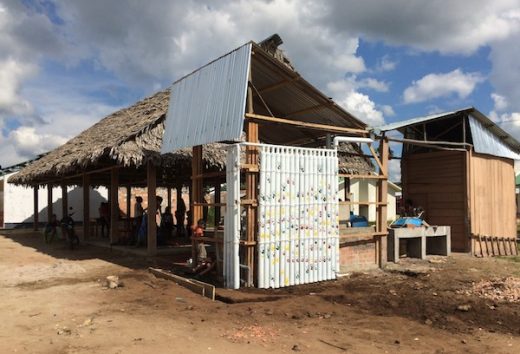
photo courtesy of WAF
The design team’s focus was to overcome the challenges around the integration of water and sewage provision in the Peruvian Amazon, where only 31% of the population has access to water, despite living in an area with the highest levels of annual rainfall worldwide. Differing from a traditional water tank system, the PUCP team developed a system of tubes that capture, store and treat rainwater, and serves as a non-load-bearing wall that occupies less space and can be more easily integrated with existing architecture. The number of tubes can be increased or decreased according to the user’s water needs. The system also incorporates traditional architectural solutions, such as promoting permeable walls and facilitating cross-ventilation, allowing users to address the high temperatures of the Amazon without the need for artificial systems like air conditioning.
By designing an independent system from conventional networks, the designers sought to reduce the costs of implementation and maintenance that they generate. The system is also communal and not individual, therefore reducing costs per family. In the same way, its communal use promotes activities, such as washing clothes and cooking, that generate public platforms for inclusion and dialogue.
Paul Finch, Programme Director of World Architecture Festival commented: “Ingeniously addressing the ironic condition that communities in the Amazon do not have adequate water despite having the highest rainfall in the world, this proposed communal water management system admirably addresses both the social community and environment challenges interlinked with water shortage and quality. Plus, it is an adaptable idea, there is the ability to replicate the design in similar environmental terrains. It is a worthy winner of our inaugural WAF Research Prize.”
Belen Desmaison, Teaching Fellow at Pontificia Catholic University of Peru, commented: “We are very grateful for this award as it will allow us and the communities in the Amazon Rainforest that work with us to continue to explore alternatives for the provision of water to peri-urban and rural areas. We aim to use this opportunity to work on the production of a rainwater storage system made using local materials and knowledge that can be easily integrated with traditional architectural typologies.”
The prize was the first to be announced following the 2017 launch of the WAFX Manifesto, which identified the key challenges architects will need to address over the next ten years, including climate, energy and carbon; ageing and health; re-use; smart city technology; building technology; cultural identity; ethics and values; power and justice; and virtual worlds.
Michael Seum, Vice President Design at GROHE comments: “When first identifying projects with water scarcity issues I did not imagine that the Peruvian Amazon would feature on the shortlist. However, this carefully considered project highlights that less than a third of the population has access to water and the proposal of a communal water management system integrating pre-existing water networks sounds like a pragmatic and innovative solution. We are proud to present the £10,000 prize money to this research project.”
For more details on the WAF Awards and the festival please visit: www.worldarchitecturefestival.com @worldarchfest #WAF2018
Background
The full shortlist for the WAF Water Research Prize 2018 was:
The Forgotten – Dead Or Alive: Will We Let The Lake Chad Die?
HKA | Hermann Kamte & Associates
Lake Chad – Africa
Liquid Kingdom
Smout Allen
Isle of Sheppey, Kent, UK
Rainwater Collection System as a Bioclimatic Curtain Wall for the Amazon Rainforest
Pontificia Universidad Católica del Perú
Amazon, Peru
Kathmandu’s Civic Waterway: From Holy River to Open Sewer and Back Again
Architecture of Rapid Change and Scarce Resources. Sir John Cass, School of Art, Architecture and Design. London Metropolitan University
Kathmandu, Nepal
Convert Existing Intermittent Supply Systems to Continuous Ones Through Reducing Optimisation Search Space Using GA
Development and Reconstruction Bureau
Conceptual
Hatching
Menis Arquitectos
Conceptual
STEEP AND DRY. RETAIN AND COLLECT
SoPA Social Practice Architecture
Bolivia
Building resilience in extreme environments: water management strategies of desert societies
CEPT University, Ahmedabad, India
Jodphur, India
NEXT EXTREME (Next generation infrastructure design under extreme conditions)
TUDelft
Conceptual
Hydrating Jordan
Feilden Clegg Bradley Studios
Jordan
LoFlow+Bio
thr34d5
Conceptual
The Ndumo case study: Embedding sustainable design in human settlement type projects
Arch Urban Plan
Ndumo, South Africa
Why get involved in World Architecture Festival?
WAF is where the world architecture community meets to celebrate, learn, exchange and be inspired.
The 2018 World Architecture Festival (WAF) comprises 5 key elements:
• The WAF Awards
• A thematic conference programme
• An exhibition of Award entries
• Sponsor and exhibitor stands
• A series of networking/social events, as well as WAF fringe activities
INSIDE World Festival of Interiors runs alongside WAF, with its own awards and conference programme. Delegates have access to both events.
WAF and INSIDE are organized by EMAP, publishers of The Architectural Review and The Architects’ Journal.
WAF Manifesto:
To celebrate reaching its tenth edition, World Architecture Festival organisers launched the WAFX Manifesto in 2017. The Manifesto identifies key challenges which architects will need to address over the next ten years, including climate, energy and carbon; water; ageing and health; re-use; smart city technology; building technology; cultural identity; ethics and values; power and justice; and virtual worlds.
Sponsors:
WAF is proud to work with Founder Partner, Grohe, and headline partners ABB Busch-Jaeger and Miele.
Previously on e-architect:
World Architecture Festival Reveals 2018 Awards Shortlist
Selected Projects:
Patio House By OOAK architects
Location: Karpathos, Greece
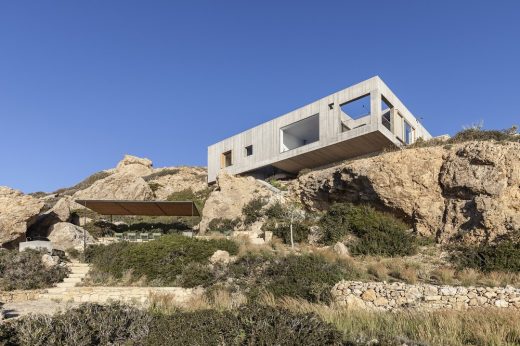
photo : Yorgos Kordakis
Zeitz MOCAA By Heatherwick Studio
Location: Cape Town, South Africa
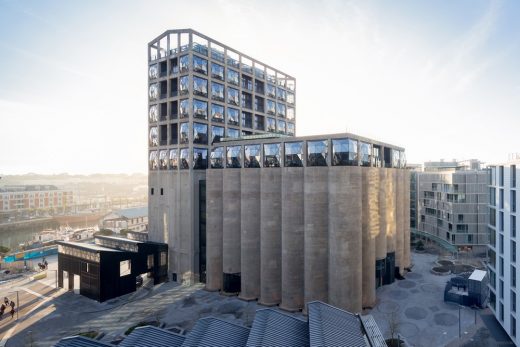
photo : Iwan Baan
Chapel Our Lady of Fátima By Plano Humano Arquitectos
Location: Castelo Branco, Portugal:
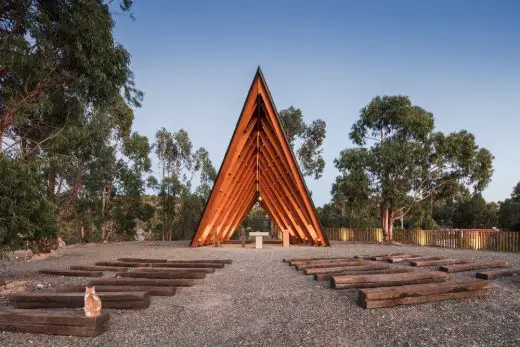
photo : João Morgado
Freycinet Lodge Coastal Pavilions By Liminal Architecture
Location: Coles Bay, Tasmania, Australia:
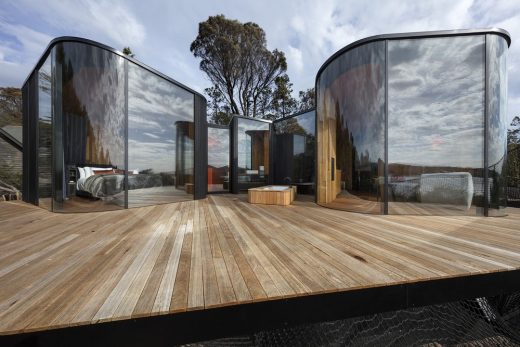
photo : Dianna Snape
World Architecture Festival 2018 Shortlist
Location:RAI Amsterdam, Netherlands
WAF Awards
World Architecture Festival 2017
The World Architecture Festival (WAF) had its its tenth edition at the Arena Berlin in Germany from 15-17 November 2017.
World Building of the Year 2016: National Museum in Szczecin – Dialogue Centre Przełomy, Szczecin, Poland by Robert Konieczny- KWK Promes:
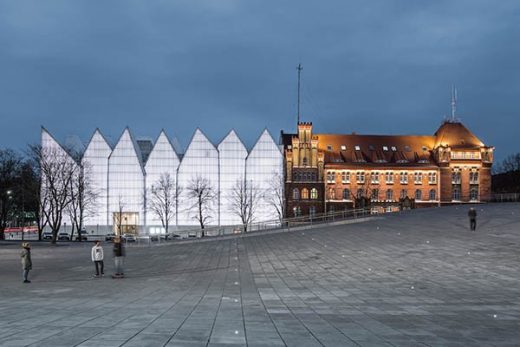
image courtesy of architects
World Architecture Festival Awards 2017 Shortlist
World Architecture Festival Finalists in 2016 – shortlisted buildings + architects news
WAF Awards 2014 Winners
World Building of the Year award to The Chapel, Vietnam, designed by a21studio:
WAF Awards 2013
World Building of the Year Award 2013
Auckland Art Gallery Toi o Tamaki, New Zealand
Design: Francis-Jones Morehen Thorp and Archimedia
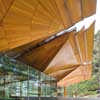
photo : John Gollings
WAF Awards 2013 : more images + links
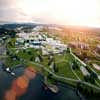
picture : Placebo Effects
WAF Awards 2012
World Building of the Year Award 2012
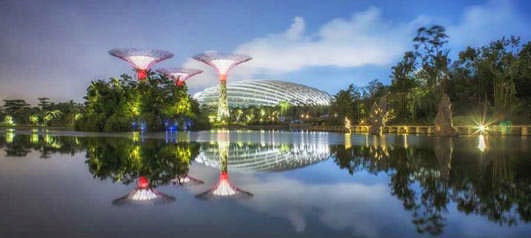
photo : Darren Chin
World Building of the Year winner : Gardens by the Bay Conservatories Singapore
World Architecture Festival Awards 2012 buildings news
WAF Awards 2011
WAF Awards
the e-architect team were at WAF from Wed to Fri
Media-TIC wins World Building of the Year 2011 at World Architecture Festival Awards
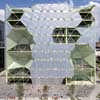
image from architect
Media-TIC : World Building of the Year 2011
World Building of the Year 2010
WAF Awards Overall winner
MAXXI, Rome, winner of World Building of the Year 2010

photo : Roland Halbe
MAXXI Rome by Zaha Hadid Architects
WAF Awards 2008 : 2008
Comments / photos for the World Architecture Festival Water Research Prize 2018 page welcome
World Architecture Festival Water Research Prize 2018 – page
WAF – Website: www.worldarchitecturefestival.com

